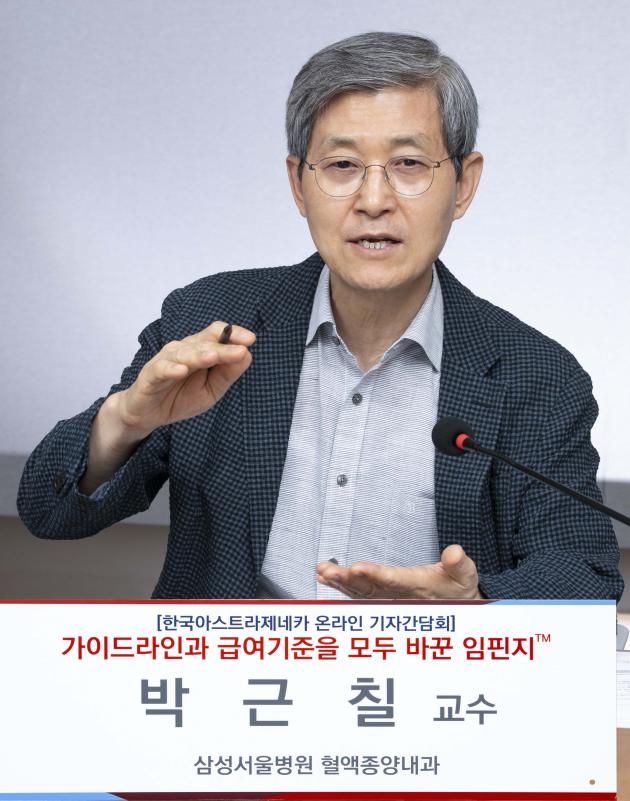Clinical results have shown that AstraZeneca's Imfinzi may be an effective option for non-resectable stage-3 non-small cell lung cancer (NSCLC), the company said Wednesday.

Lung cancer has the largest number of the patient population accounting for 11 percent of the world's cancer outbreaks. The disease is also difficult to treat and has a high mortality rate. Notably, patients of non-resectable stage-3 NSCLC have a five-year survival rate of less than 20 percent. While concurrent chemotherapy (CCRT) is a standard treatment for nonresectable stage-3 non-small cell lung cancer, the results are not satisfactory.
However, the treatment landscape has changed after global researchers confirmed the effectiveness of a treatment that added immunotherapy to CCRT in 2017.
Among the treatment options for non-resectable stage-3 NSCLC, AstraZeneca's Imfinzi has demonstrated a significant improvement in survival after 20 years. It was recommended as standard therapy in the Pan-Asia European Society for Medical Oncology (ESMO) guidelines.
The treatment has also become the first immunotherapy launched in Korea to receive health insurance benefits as consolidation therapy for NSCLC from April 1.
Professor Park Geun-chil at Samsung Medical Center explained the clinical value of the drug in treating non-resectable stage-3 NSCLC, during an online media seminar held by AstraZeneca on Wednesday.
"Until now, surgery or a combination of radiation therapy and chemotherapy was conducted on stage 3 NSCLC patients with the aim of resecting local progression or cure," Professor Park said.
Despite several studies over the past 30 years, the prognosis was poor, with a five-year survival rate of less than 20 percent for stage-3 NSCLC patients, Park said. However, AstraZeneca's PACIFIC study showed that the treatment increases the likelihood of cure for stage 3 lung cancer and brings a change to the treatment paradigm that has been in place for the past 20 years.
The PACIFIC study is a phase 3 clinical trial evaluating the effect of improving the progression-free survival (PFS) and overall survival rate of Imfinzi in non-resectable stage 3 NSCLC patients. The trial showed a median PFS of 17.2 months in the Imfinzi group compared to the 5.6 months in the placebo group.
Also, the third year overall survival rate of the group treated with Imfinzi was 57 percent compared to the placebo group's 43.5 percent.
Based on the PACIFIC study results and the recommendations of international medical guidelines, the drug has received reimbursement for treating patients with 1 percent or more of programmed death-ligand 1 (PD-L1) expression rate as consolidation therapy.
"The reimbursement of Imfinzi has allowed us to classify the purpose of using anti-cancer drugs in Korea between consolidation and palliative therapy," said Im Jae-yoon, leader of AstraZeneca Korea’s medical team. "The insurance benefits further shows that the drug has a curative intent and not palliative intent."

